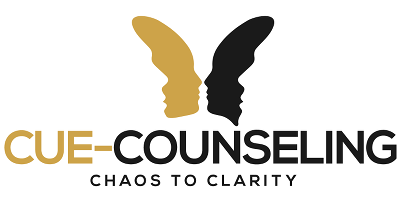In 2018, it was estimated that over 20 million people in the United States were suffering from an addiction.
The year before, it was reported that nearly half of all Americans had a family member or close friend who had been addicted to drugs. This data did not account for behavioral addictions like gambling, pornography, shopping, and the like.
If you or someone you care about is struggling with an addiction, know that recovering from addiction starts with understanding its nature, and then, understanding yourself.
What Addiction Looks Like
Even if you don’t see yourself as an addict, you can probably think of something you do to take the edge off of your stress.
Maybe you have a few sips of whisky after a hard day, or you binge-watch TV shows when you’re feeling lonely, or you scroll on social media looking for positive feedback on your posts.
What you choose to indulge in is a matter of personality. It is your relationship with your indulgences that can become problematic.
Here is the definition of addiction according to the American Psychological Association:
“Addiction is a state of psychological or physical dependence (or both) on the use of alcohol or other drugs. The term is often used as an equivalent term for substance dependence and sometimes applied to behavioral disorders, such as sexual, internet, and gambling addictions.”
Biologically speaking, addiction looks like a dysregulation in the brain’s reward and motivation centers. Nerve pathways become pruned through repetition to activate only when a person engages with a specific substance or behavior.
But what does that look like for an individual? It looks like needing to do something instead of choosing to. It looks like someone gaining all of their joy, comfort, and satisfaction from one thing, and letting it drive their life choices at the expense of other things.
This often leads to tumultuous relationships, legal troubles, isolation, shame, or worse.
The conventional wisdom is that addiction is a brain disease governed by genetics, but there is more to that story.
Is Addiction Really a Disease?
Functionally, addiction can look similar to a disease. An addicted individual habitually returns to a substance or behavior as if they need it to survive; this is the primary “symptom” of their condition.
Does this mean that addiction is just a brain disease that is hardwired into us by genetics from the day we’re born? Not exactly.
Genetics do play a role in addiction, but instead of saying that genes code for addiction, it is more accurate to say that they code for the potential for addiction. Genetics do not doom us to be addicts any more than sensitive taste buds doom us to be overweight.
There are several factors that contribute to the development of an addiction besides genetics, including…
- Emotional and cultural environments.
- Interpersonal relationships and self-esteem.
- Personal temperament.
- Personal values.
The underlying causes of addiction will vary between individuals, but what’s common among them is that addiction serves a purpose beyond enjoyment or stress relief.
Whether it’s gambling addiction, opioid addiction, video game addiction, or alcohol addiction, each one may be acting as a substitute for something missing in a person’s life.
In this sense, addiction can be seen not as a disease but more as a chronic, maladaptive way of meeting our needs.
Addiction Recovery Redefined
“Addiction is the search for oblivion, for forgetting, for the contortions we go through to not be ourselves for a few hours.” — Keith Richards
Despite the chaos that addiction brings into people’s lives, a critical part of recovery is recognizing how your addiction might be serving you; to recognize that your addiction could be your way of adapting to something.
But adapting to what? The answer could lie in one other component of addiction we have yet to mention: Trauma.
Early childhood development has a tremendous impact on how we relate to others, how centered we feel, and how much we show our authentic selves to the world.
Traumas sustained in childhood (or adulthood) can impair our ability to connect to other people or feel good about ourselves. These are fundamental human needs, and when these needs can’t be met, substances and behaviors can start filling the gaps.
In the book, The Myth of Normal, addiction researcher Gabor Maté recounts a conversation he had with a heroin addict about what it’s like to take heroin. The addict said:
“It’s like when you’re three years old, sick, shivering with fever, and your mother puts you on your lap, wraps you in a warm blanket, and gives you warm chicken soup — that’s what heroin feels like.”
Other addicts he worked with reported similar feelings of “love and acceptance” from their addictions.
How biological, social, and environmental factors work together to create addictions is still a hotly debated topic among psychologists. But it is clear that addictions always seem to have an a purpose.
That purpose is most often to mend wounds and soothe pains. In the most extreme cases, addictions serve as substitutes for love, understanding, and meaning.
Once you understand what your addiction means for you, you can begin to get beyond it.
Addiction Treatment and Hope
If you’re ready to make the brave step of exploring your past and the possible origins of your addictions, working with a mental health professional could be the best way forward.
In working with a therapist, you will explore how to address your unmet needs, mend relationships, and find fulfilling purposes in your life that will replace your addictive patterns.
Using willpower to separate yourself from your addiction triggers is just the beginning of addiction recovery. At its core, recovery is a fundamental reevaluation of who you are, what you want, and how you relate to others.
You are not lost. You have the power to beat your addictions. Don’t be afraid to take the first step toward lasting change.
